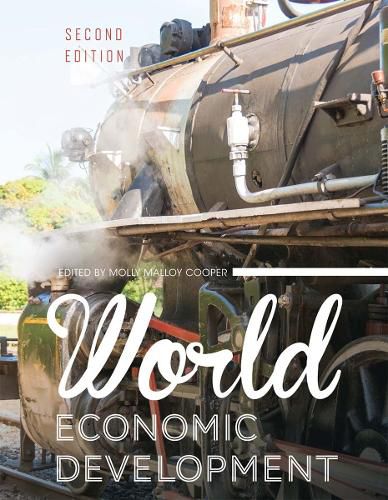Readings Newsletter
Become a Readings Member to make your shopping experience even easier.
Sign in or sign up for free!
You’re not far away from qualifying for FREE standard shipping within Australia
You’ve qualified for FREE standard shipping within Australia
The cart is loading…






The anthology World Economic Development features readings on major topics in the subject matter. The book provides analysis of critical events starting with the shift from hunting and gathering to agricultural settlements, and it addresses subsequent economic events through the Industrial Revolution and beyond.
It opens with a discussion of differences in economic development and an exploration of why the whole world is not economically developed. Through the seven chapters that follow, students learn about the economic impact of the Neolithic transformation, civilization’s origins in Mesopotamia and Egypt, the economics of ancient empires, and the late Roman economy. They also study the differing causes of serfdom and slavery, the First and Second Industrial Revolutions, and the 1929 Stock Market Crash and subsequent Great Depression.
Taken together, the reading selections in World Economic Development make the case that economics is a driving force in history and that economic progress is an integral component in progress of all kinds. World Economic Development is designed for courses in the field, those addressing the history of economic development, and classes in international studies.
$9.00 standard shipping within Australia
FREE standard shipping within Australia for orders over $100.00
Express & International shipping calculated at checkout
The anthology World Economic Development features readings on major topics in the subject matter. The book provides analysis of critical events starting with the shift from hunting and gathering to agricultural settlements, and it addresses subsequent economic events through the Industrial Revolution and beyond.
It opens with a discussion of differences in economic development and an exploration of why the whole world is not economically developed. Through the seven chapters that follow, students learn about the economic impact of the Neolithic transformation, civilization’s origins in Mesopotamia and Egypt, the economics of ancient empires, and the late Roman economy. They also study the differing causes of serfdom and slavery, the First and Second Industrial Revolutions, and the 1929 Stock Market Crash and subsequent Great Depression.
Taken together, the reading selections in World Economic Development make the case that economics is a driving force in history and that economic progress is an integral component in progress of all kinds. World Economic Development is designed for courses in the field, those addressing the history of economic development, and classes in international studies.